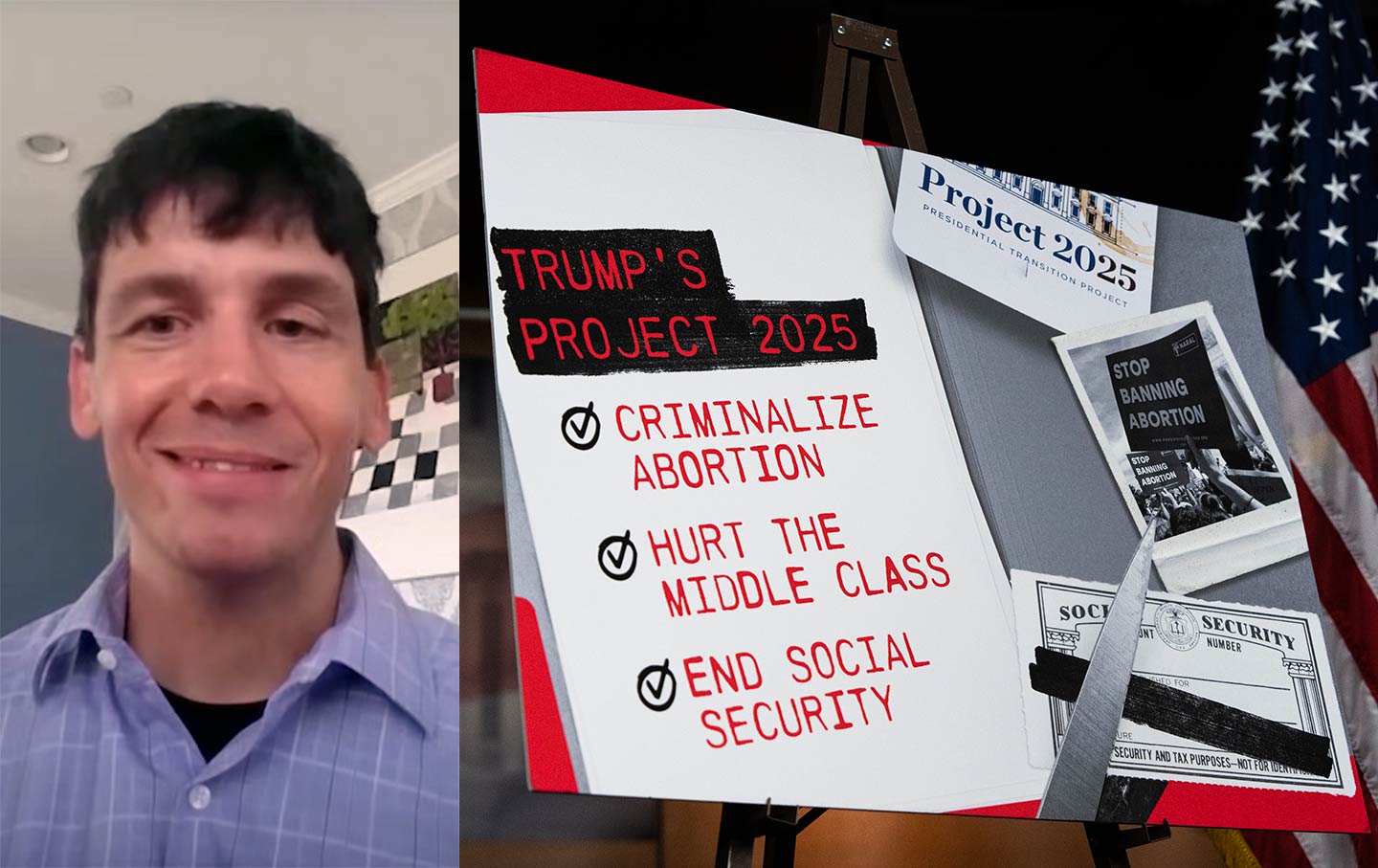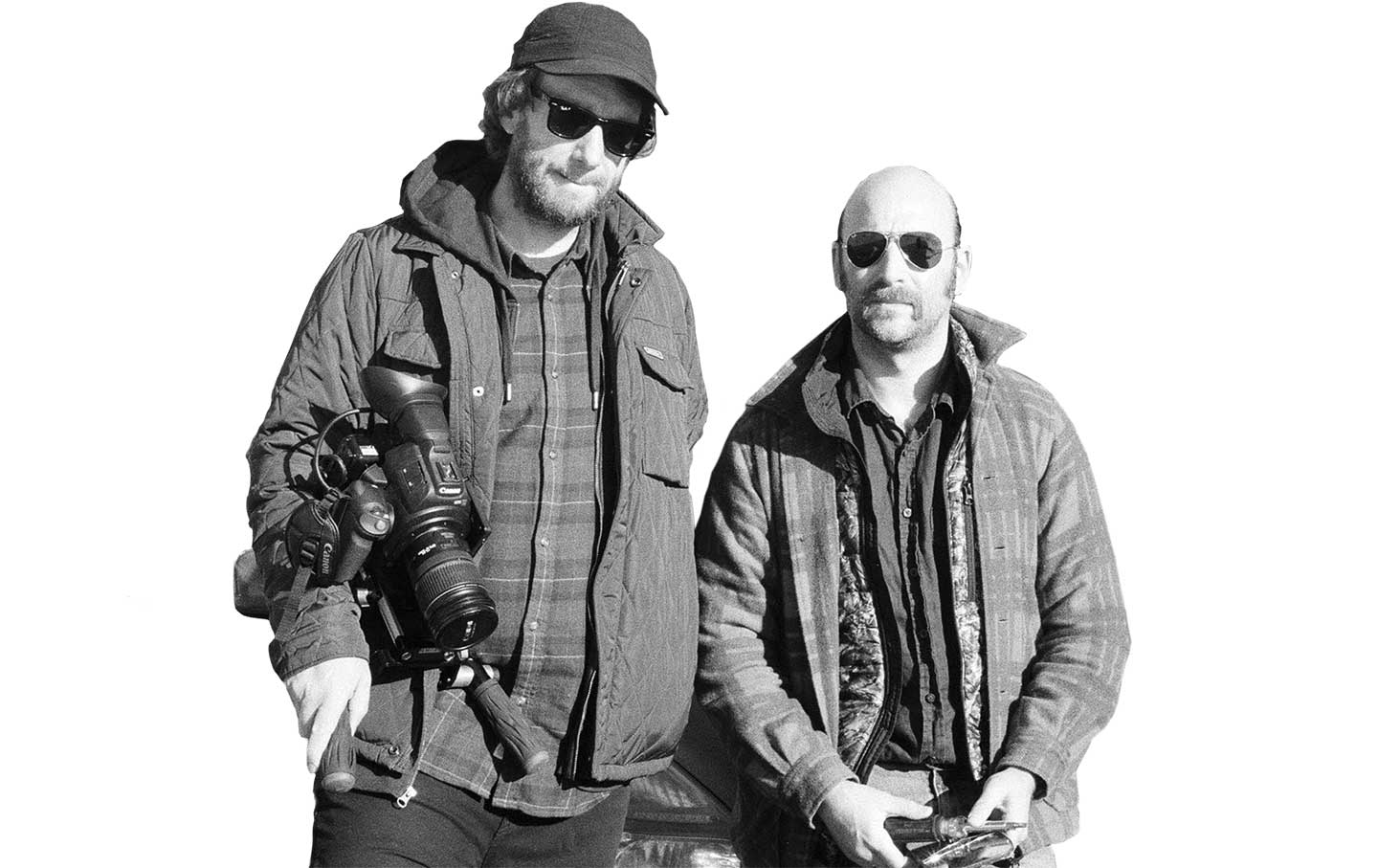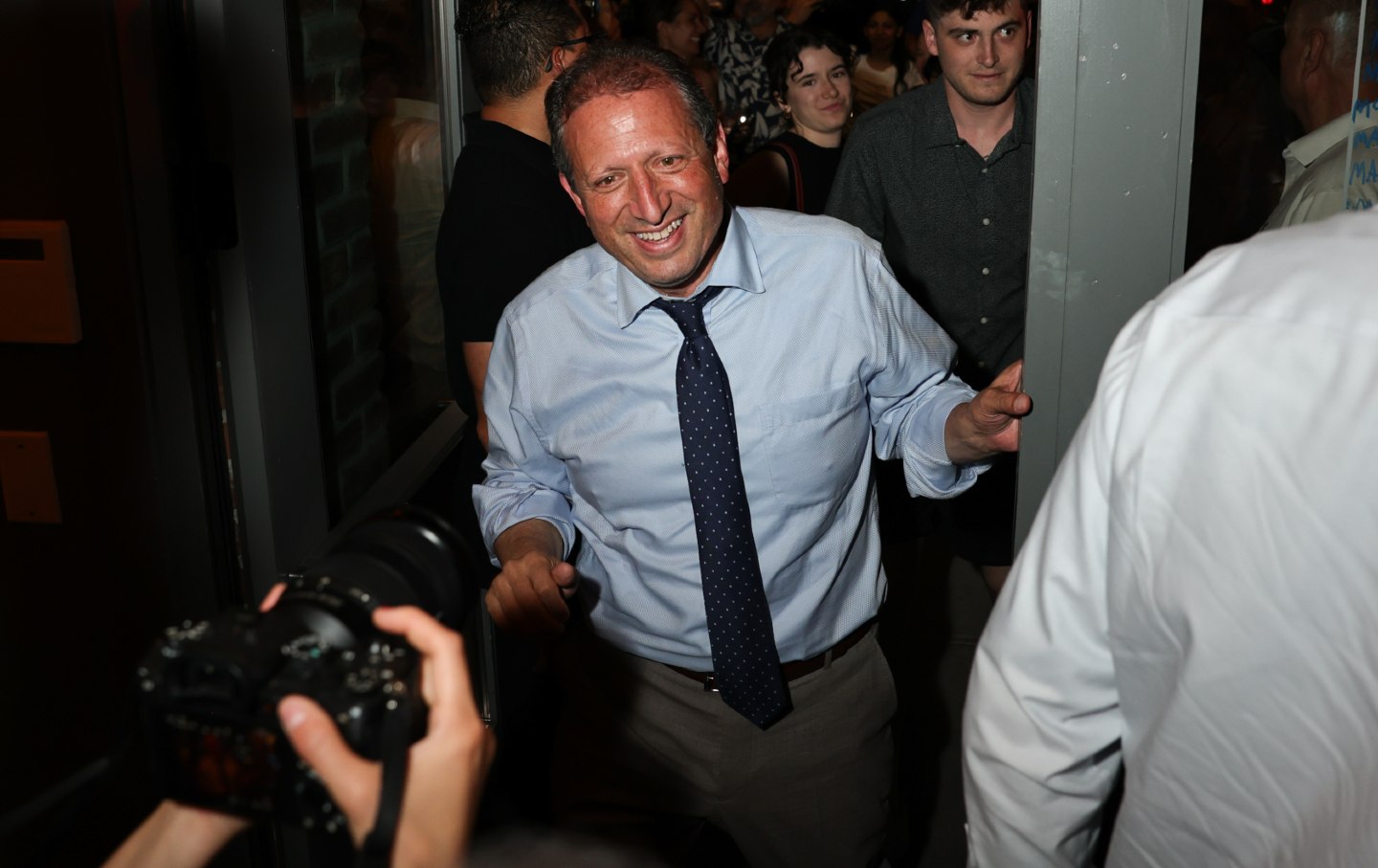
James Goodwin, the policy director at the Center for Progressive Reform. A Project 2025 sign is seen as at the Capitol Visitor Center on September 12, 2024.
(Screen grab; Tom Williams / CQ-Roll Call, Inc via Getty Images)
Workers continue to die on the job and struggle to protect worker safety, but the dangers for labor go beyond bad bosses. On the federal level, the far right’s Project 2025 playbook has plans to gut unions, fire federal workers, and limit the power of agencies like the National Labor Relations Board. The Heritage Foundation’s 900-page action plan for the next Republican administration is written by an array of right-wing think tanks, and a lot of members of the last Trump team. James Goodwin, the policy director at the Center for Progressive Reform, has closely reviewed the document and investigated what Project 2025 has in store for workers and what the implications are for all of us. I interviewed him with Maximillian Alvarez, the editor in chief of The Real News Network and author of The Work of Living.
—Laura Flanders
Maximillian Alvarez: If Project 2025 was implemented today, what would that mean for unions and union workers, especially in the public sector?
James Goodwin: We’d have no room for unions. More explicitly it talks about increasing oversight of unions, regulating them more stringently even as we deregulate employers. There’s kind of that traditional mix of old, conservative labor policy like hostility towards labor unions, but there’s this new sort of thread of the Christian view of the family, and unions do not figure into that vision.
Laura Flanders: I am curious about this relationship between the executive and states’ rights. We hear a lot from Republicans about states’ rights, certainly when it comes to reproductive rights and so on. Yet everything you’re saying is about concentrating power in the executive. So where does Project 2025 stand?
JG: That’s sort of the essential paradox that runs through all of Project 2025. There’s this very interesting chapter that Russ Vought wrote, which for me is essentially the thesis statement of Project 2025. It sets up this vision of we’re going to suck all this power out of the federal government, and we’re going to put it into the president and then the president is going to do all these great things and then return power to the public. What it doesn’t answer is, what power gets returned to the public? What happens if the president doesn’t return that power, and who gets it? In theory the power that’s being returned is this new Christian nationalist vision of social hierarchy within the United States.
MA: One of the linchpins of this whole project is something called Section F, to turn a bunch of government employees who have civil-service protections into at-will employees who could be fired much more quickly. I was wondering if you could tell us more about what Schedule F is and why it is so central to the whole Project 2025 plan.
JG: What makes the foundation of our administrative state is the people: professional, apolitical experts. This is something we started building in this country in the late 1800s to replace what was known at the time as a spoils system. These jobs were essentially done by friends of the president or people in political power, and that was just a breeding ground for corruption and incompetence. This is what Schedule F would do—it would return us to this system. Under this proposal. we would take all these experts, these tens of thousands of scientists, engineers, attorneys, what have you, and we’d fire them. Who they are getting replaced with is somebody whose only real skill is unquestioned loyalty to the president.
MA: I want to ask about the National Labor Relations Board here. The NLRB is the independent government agency that oversees labor law in this country, and it has been attacked and underfunded for years. So James, I wanted to ask you, what are Project 2025’s plans for the NLRB specifically and what should people expect Trump’s approach to the NLRB to be if he becomes president again?
JG: One of the most important things that Project 2025 calls for, for independent agencies like the NLRB, is structural. We have this universe of agencies that are run by officials that the president can’t get rid of very easily. They have to be fired for cause. One of the things Project 2025 wants to do is end all independent agencies, including the NLRB in order to increase presidential control over these agencies.
LF: So it’s another fascinating paradox that the very type of folks, Republicans, who say that they are against this administrative state, sound to me from what you are saying is they’re good at figuring out how we could weaponize that state. James, you’ve been researching this for a year now, this thing came out in September of 2023. It is authored by a huge array of all the right’s think tanks on every single area of concern. That frightened the heck out of me, that all of these folks had been brought together and agreed to participate in a single document. We have the Republican candidate for the presidency saying, “Oh no, this has nothing to do with me. I’m nothing to do with Project 2025.” What’s the truth in that and who do you think is really behind this? Because this isn’t, let’s face it, the work of any one person or even any one group.
JG: It is really hard to disentangle Project 2025 from Trump, the presidential candidate. Something like 80 percent of the lead authors for the various chapters in Mandate for Leadership, which is the major policy playbook, are former Trump administration officials from the first term, the guys leading it, gender language intended. His super PACs promote it with approval.
MA: Have you thought in kind of creative terms of what it would be like to be a worker trying to organize for a health and welfare committee of their workforce, even if they don’t have a union, even if they don’t have a clear employer, simply to raise concerns about dangers on the job? Or the folks in Texas talking about a right to self-government, a right to have the laws that we make in our locale not rescinded by some higher office?Imagine what it’s like for us, if you would, to wake up and find yourself in 2025 land. If you’re any of those people, how would things be different?
JG: That’s bleak. As a worker, I wouldn’t have the free time to do these sorts of things, because overtime pay is gone. We’re going to allow increased concentration within different industries. So the disparities between me and my bosses, whoever they are, wherever they are, is going to be made even worse. My coworkers who may not look like me, who may be queer or people of color, are going to be fearful to speak out because they don’t have recognized civil rights anymore. Because of that, I can’t band together with them either informally or as part of a union. It creates division that way. That’s really the basic dynamic that Project 2025 is trying to set up as an authoritarian blueprint, is to create division within our society to make it easier for these kinds of shifts of power, concentrations of power in support of a minority-driven government.
MA: This really sums up what I would call boss governance. Trump is not the first Republican to say he wants to run government like a business. Republicans have been saying that since I was a Republican 20 years ago, and long before, but this is what it actually means. As someone who interviews workers in America, I can tell you most workers work in a dictatorship. They do not have democracy on the shop floor. They do not have democratic accountability with their bosses or managers, let alone the ability to make demands to their employers to improve their working conditions. I wanted to hook into that James, and ask why bosses and the corporate powers in Wall Street love Project 2025 so much, just like they love the “Death Star” Bill in Texas. How does this sync up?
JG: One way to think about Project 2025 is it aspires to turn all of America into a company town, where company runs everything, every aspect of our governance, society, what have you. To be honest, if you were to take corporate America into a quiet room and buy them a few drinks, I think they would probably be a little conflicted about Project 2025. I think there’s much of it, like the old stuff, small government, tax cuts, these sorts of things—totally on board with. I don’t know how comfortable they are with the authoritarian aspects, because look at Target. You celebrate Pride Month a little too much under a second Trump term, and he’s going to turn the Department of Justice on you or the FBI. If I’m CEO of Target, I don’t like that. The crackdown on immigration, many industries depend on undocumented workers to sustain themselves. I think there’s a lot in the immigration chapters on Project 2025 that the business community is not comfortable with. And so that’s really in many ways what Project 2025 is meant to do, is to give the business community enough tax breaks and regulatory rollbacks to make the bitter pills of authoritarianism and Christian nationalism go down.








